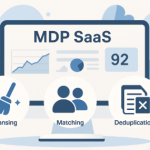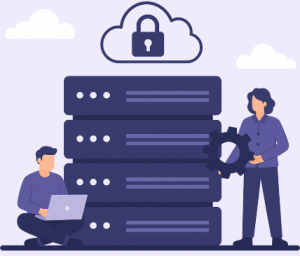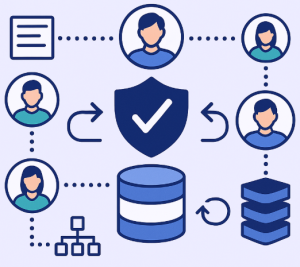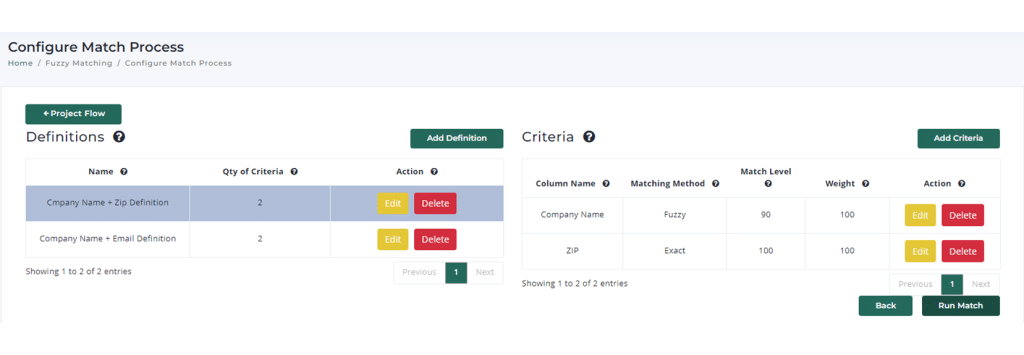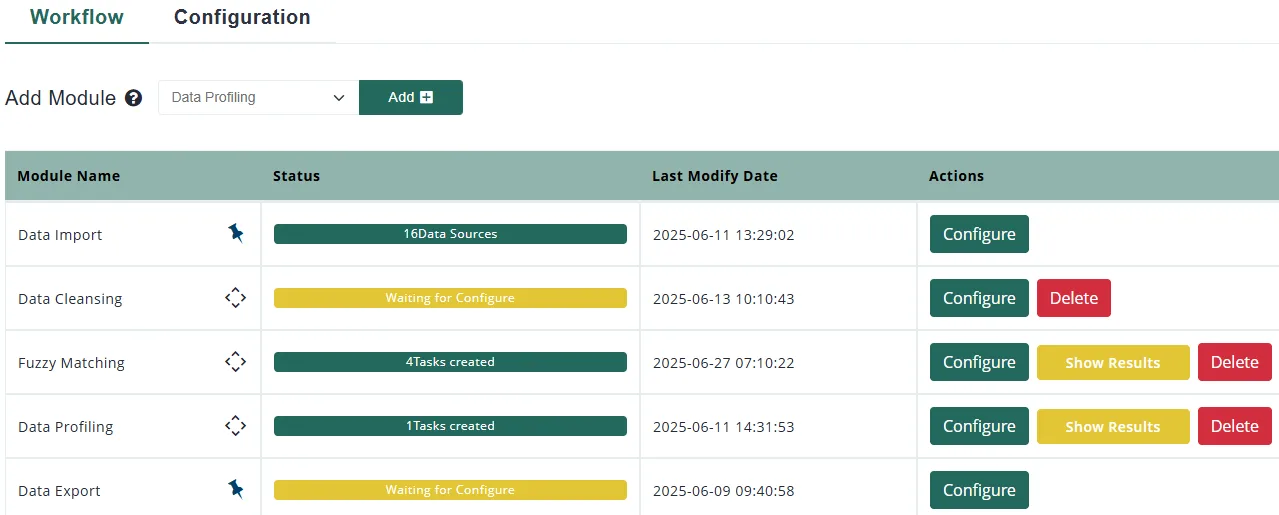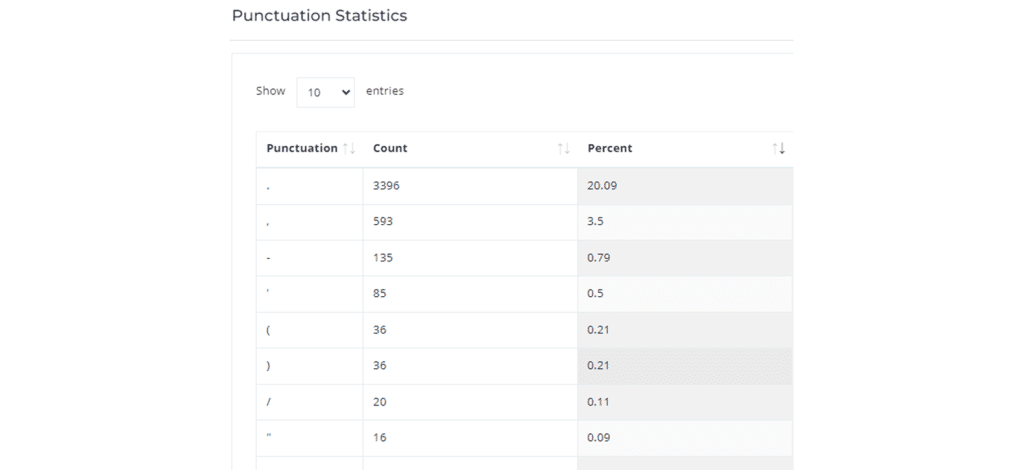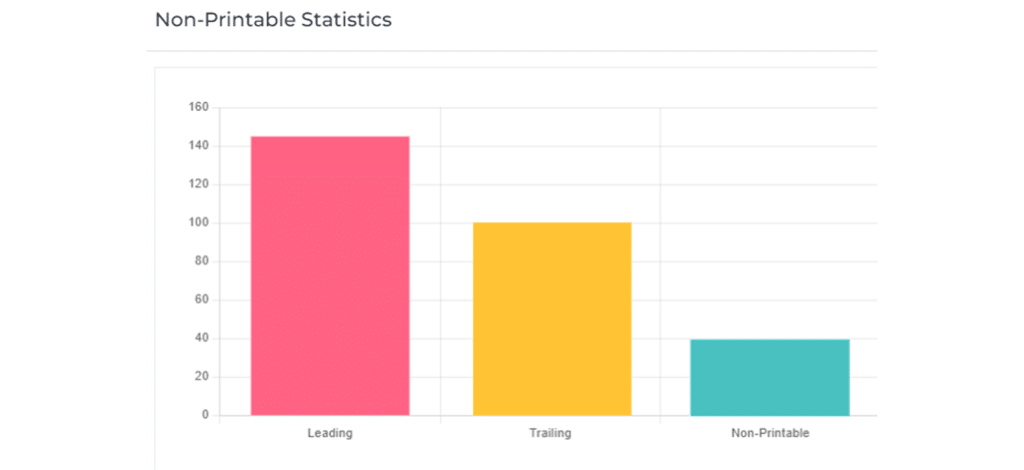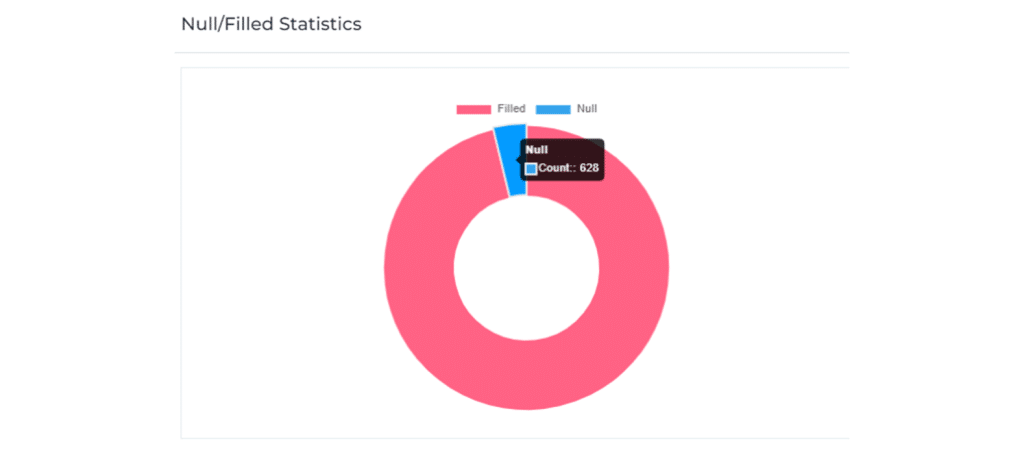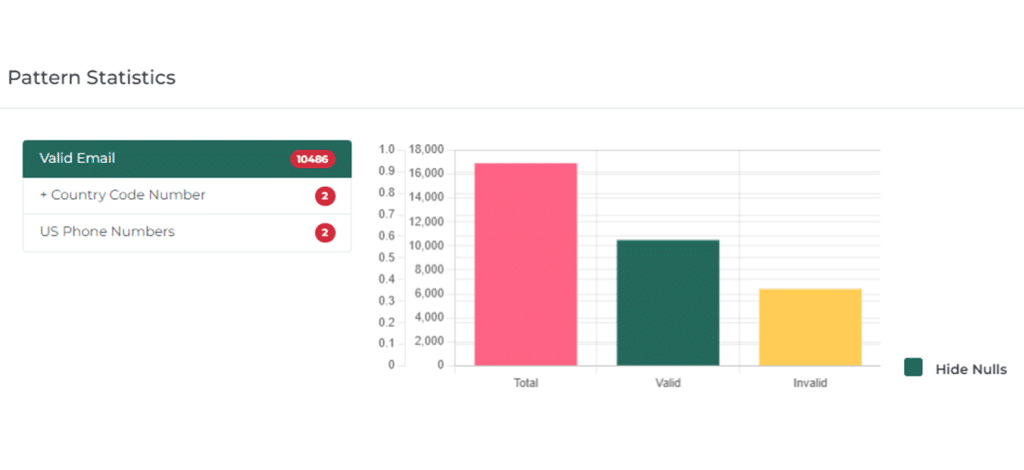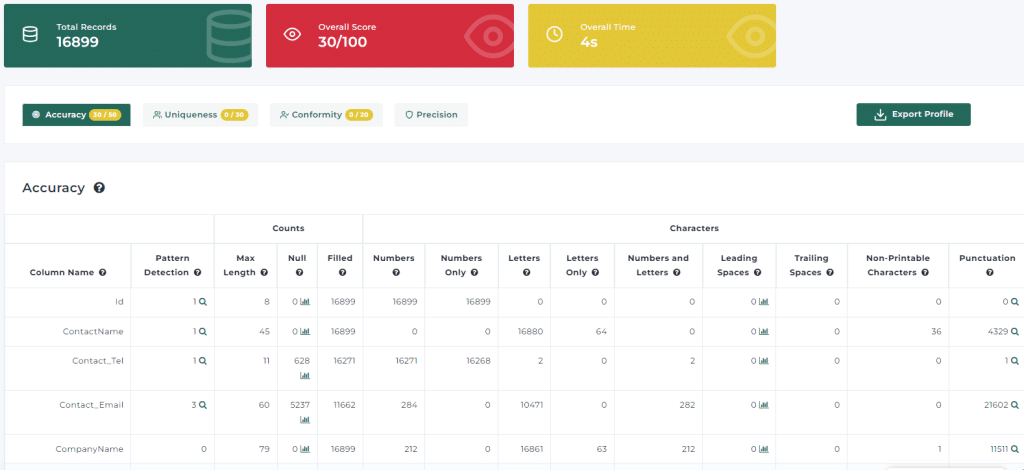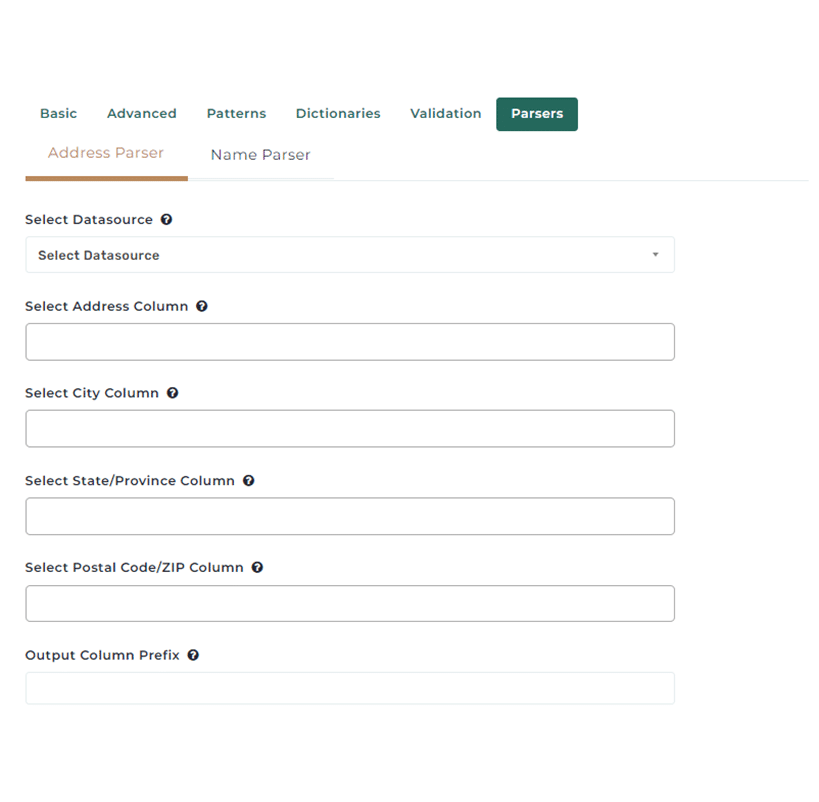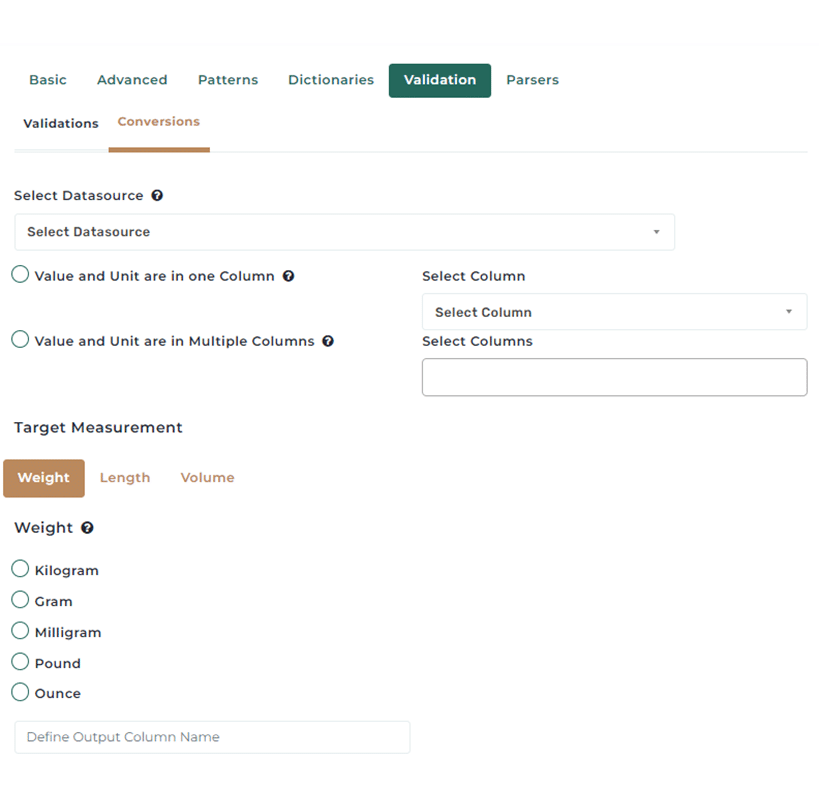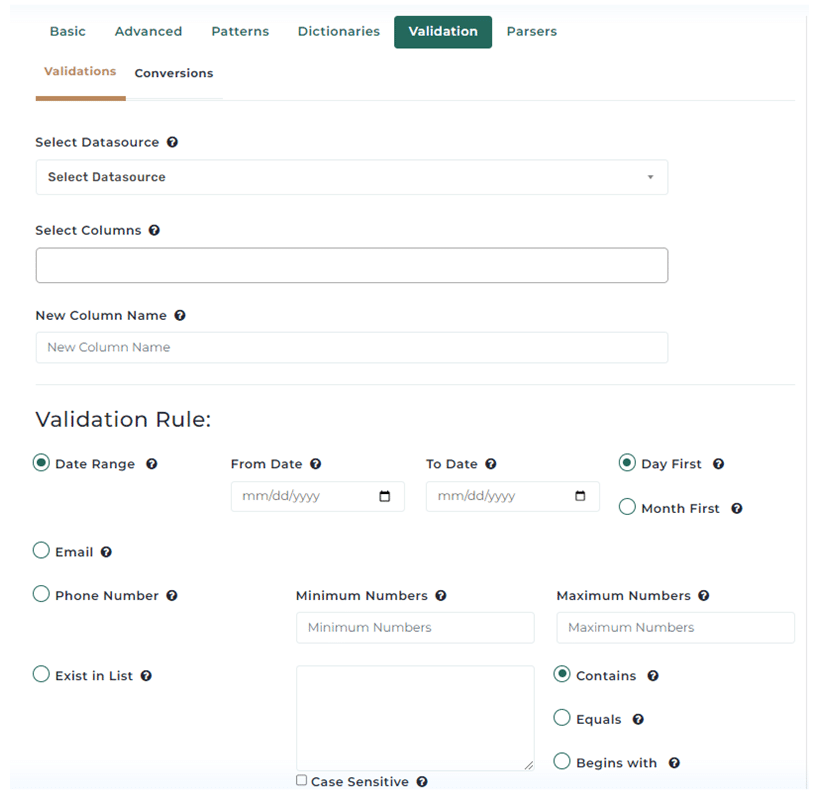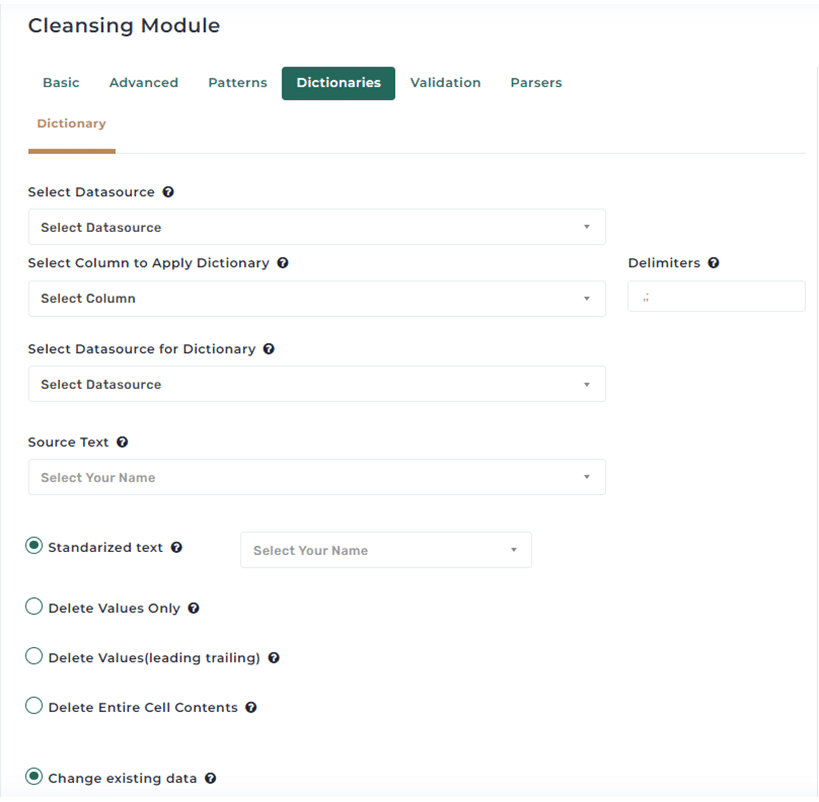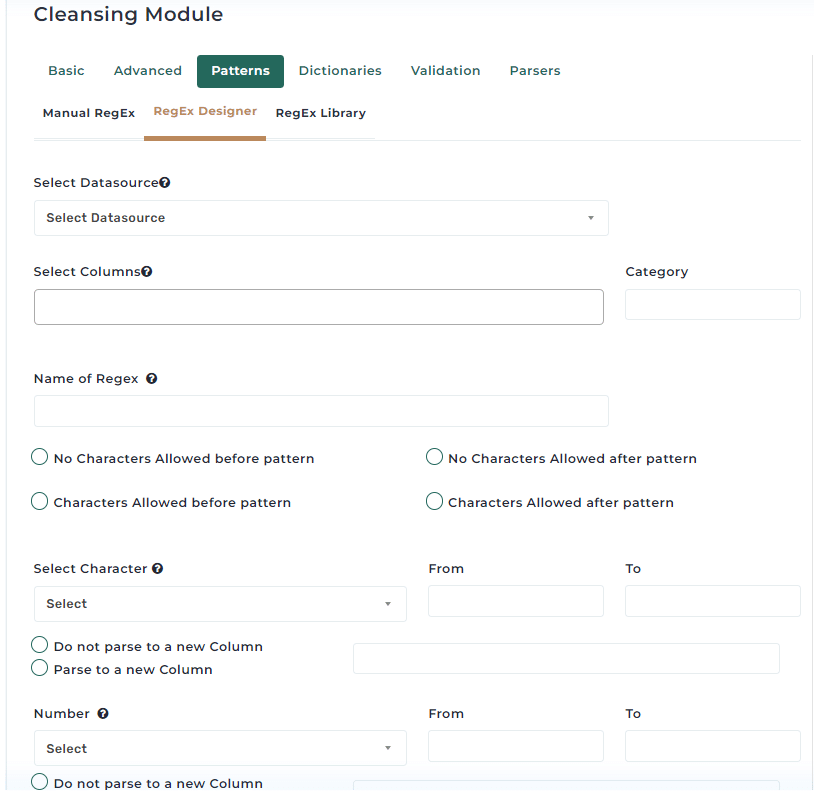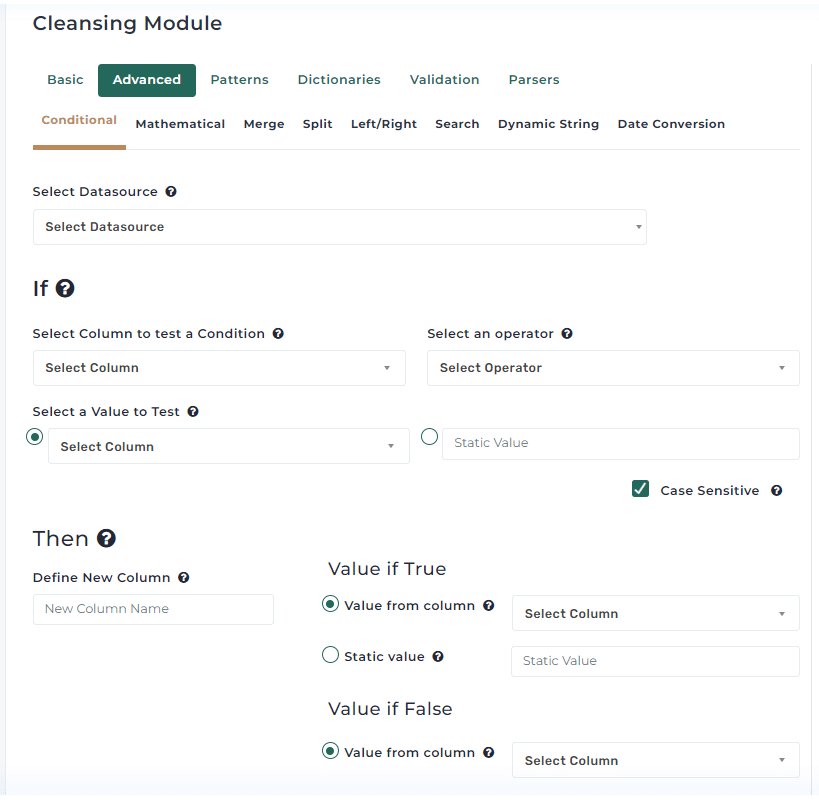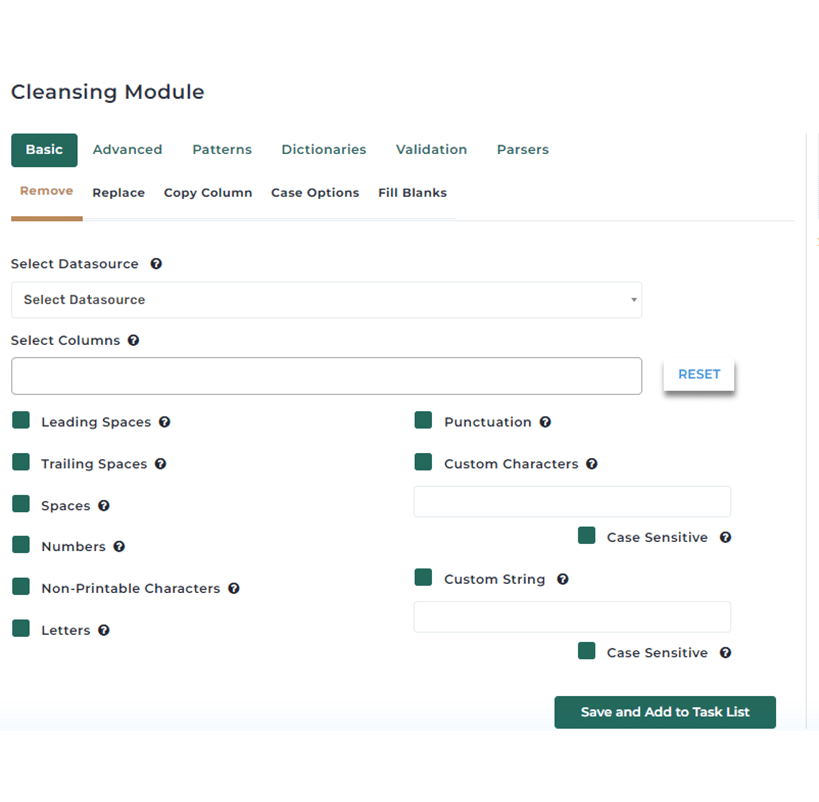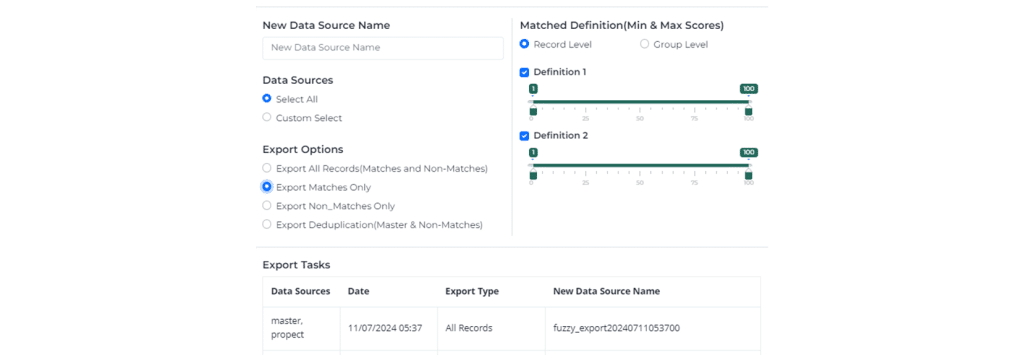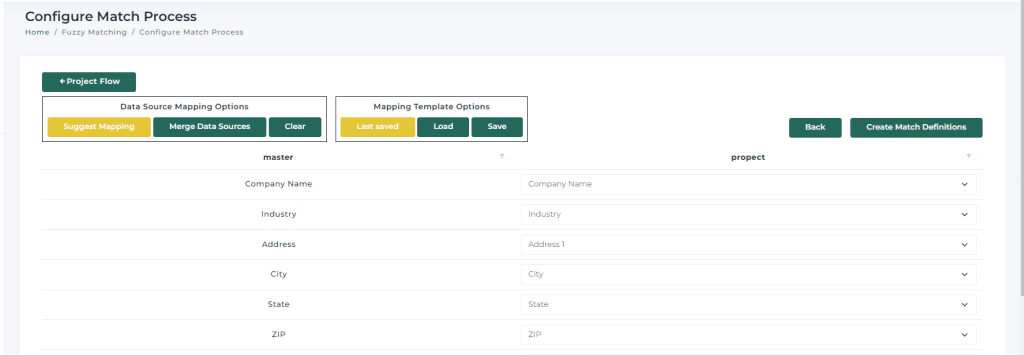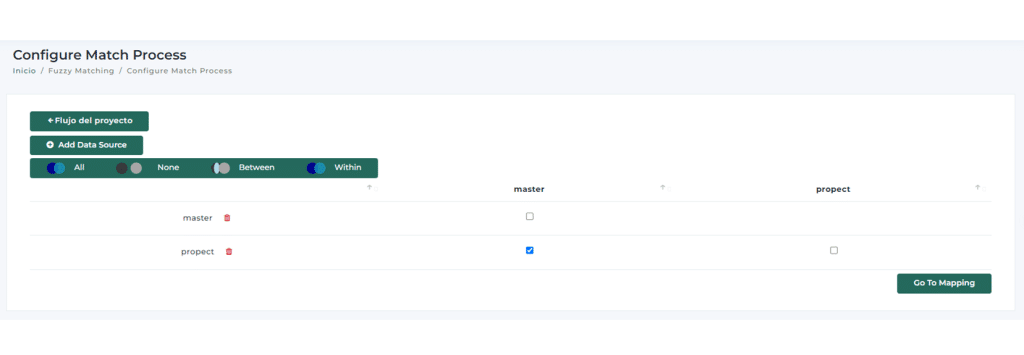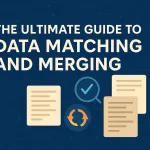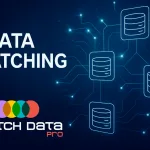The #1 Data Quality Management Platform for Matching, Cleansing, and Merging Data
Match Data Pro unifies all your data processes into one intelligent data quality platform. Easily profile, cleanse, and match records across files, databases, and systems. Built for accuracy and scale, it uses advanced algorithms and AI-ready fuzzy matching to detect duplicates, fix inconsistencies, and merge clean, reliable datasets.
Match Data Pro Deployment Options
SaaS (We Host)
Enterprise-Grade AI Fuzzy Data Matching
- Flexible rule-based matching for maximum accuracy.
- AI powered match definition suggestions
- Identify and remove duplicates in seconds with easy deduplication.
- Fuzzy match within/between unlimited data sources
- Overwrite and merge data within groups & create a Golden Record
- Fine tune data matching with proprietary scoring & match grouping
- Built-in data quality management tools
- AI match results validation for edge cases
Our advanced cleansing options help you to adhere to the best data cleansing practices in order to normalize data for deduplication
Our fuzzy matching software is optimized for performance—process large volumes of data quickly and efficiently without exceeding memory limits.
Project Based Data Management
- Seamless data import/export with connectors for cloud databases, files, JSON, Google Drive, Dropbox, OneDrive, SQL, and ZIP archives.
- Comprehensive data profiling solution to analyze nulls, patterns, types, duplicates, and anomalies—improve data quality before matching or cleansing
- Powerful data cleansing with best practices for normalization, standardization, formatting, and error removal to prepare data for matching.
- Advanced fuzzy matching software to detect similar records using customizable logic—ideal for deduplication, data matching, and entity resolution.
Match Data Pro Reviews & Product Details
At G2.com
"Complex Fuzzy Data Matching Resolved"
Chief Technology Officer Mid-Market(51-1000 emp.)
What do you like best about Match Data Pro?
The step by step process by which a user is guided through the matching process. The process follows a logical pattern so that at the end the work product is correct. Fuzzy data matching is complex with many permutations, Match Data Pro has been able to accommodate the complexity of my data sets. As it is a SaaS product and on-prem I have options based on the user and data set. The team was very helpful in the onboarding and training.
What problems is Match Data Pro solving and how is that benefiting you?
Matching multiple data sets in a timely and trusted manner.
"Ive been using the platform for about 12 months now and have to say its very simple to use."
Senior ERP Consultant Enterprise(> 1000 emp.)
What do you like best about Match Data Pro?
It has all the required tools for your data. Profiling, Cleansing, Fuzzy Logic and Mapping. My favourite is the speed in which the tool allows you to be up and running within under 1 minute and profiling data.
Most other apps have a large set up overhead and a huge learning curve.
The other thing is the pricing is very easy and clear.
Ben and James have been great in providing support and helping where they can.
What do you dislike about Match Data Pro?
A bit more training videos but these are now in production with a few coming out.
What problems is Match Data Pro solving and how is that benefiting you?
Providing clean data very fast. this takes typical use of spreadsheets and causing delays as teh data is line by line but with MDP you get to see the full data set. Every field is captured and a status provided. It’s also easy to see the errors within a quick link file view showing you the actual data.
No Registration or Credit Card Needed
Go ahead, ping us if you have questions
Try our fuzzy data matching now
Watch a Demo
What You Can Do
with
Match Data Pro
Match Data Pro isn’t just about world-class fuzzy data matching— it’s designed to make complex data workflows simpler, smarter, and more collaborative. Here’s what you can expect
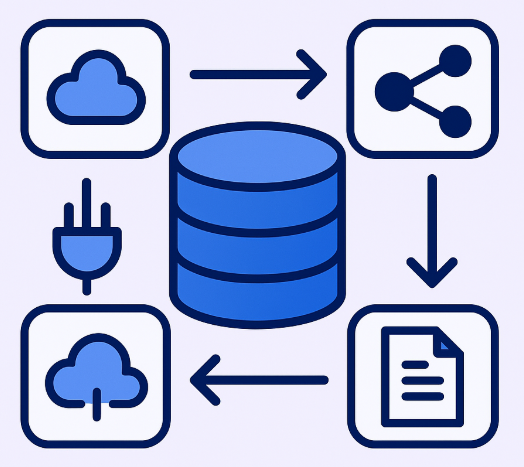
Seamlessly connect and sync data from diverse sources, even incompatible systems,
to enable unified, automated,
real-time data integration.
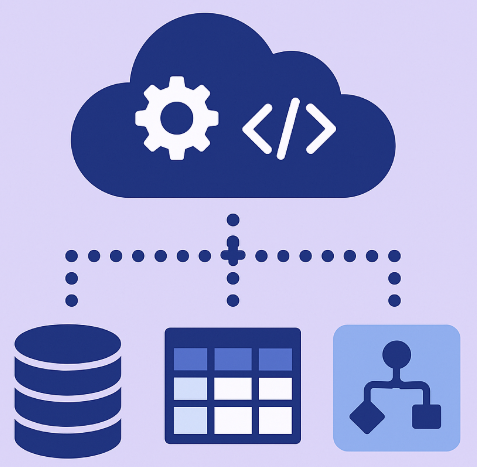
Our cloud APIs and integrations let you connect with top platforms—Snowflake, Google Drive, OneDrive, Dropbox, and other data sources.
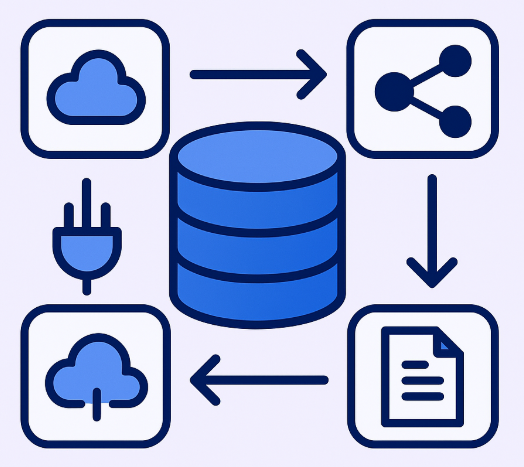
Leverage pre-built connectors that work with virtually any file format or data structure.

Manage all your integrations and data workflows from a clean, intuitive dashboard — no coding required.
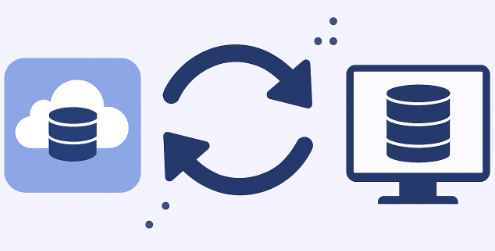
Keep your data in sync with built-in replication and synchronization tools.
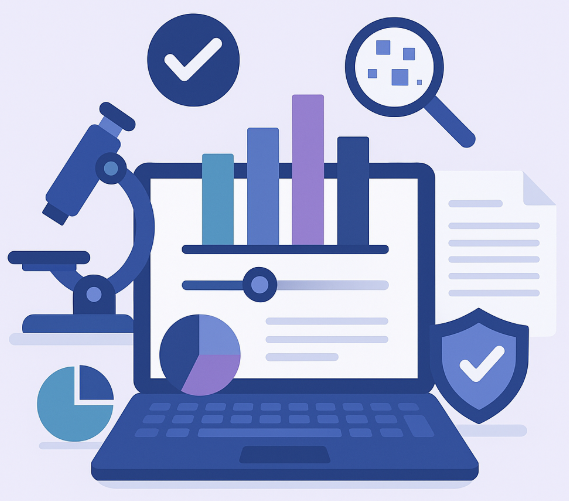
Find and fix data issues fast
using built-in
tools for profiling, cleansing,
and monitoring data quality.
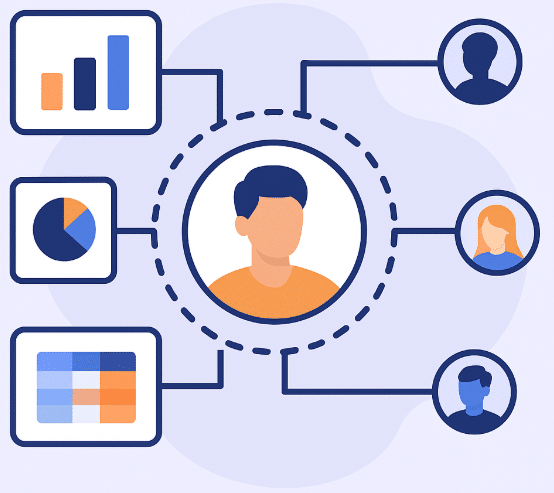
Quickly build 360-degree views of your customers, vendors, or any business entity using internal and external sources.

Standardize, clean, and deduplicate records at scale with rules that prevent bad data from entering the system.

Automate your entire process with easy-to-use workflows, reusable rules, version control, scheduling, webhooks, and REST API triggers.

Work better as a team by assigning different levels of access and sharing project workflows securely across your organization.
Discover Deep Data Insights
with Our AI Profiling Tool
Unlock powerful data insights with our advanced profiling tool. Featuring over 25 key metrics, it allows you to thoroughly analyze data quality and uncover issues that need addressing. Our tool provides a detailed analysis to help you identify inconsistencies and anomalies efficiently.
Enhance your data management with a professional AI summary of your data. Customize a report in seconds, and easily create actionable insights using AI.
AI Data Cleansing & Standardization
Transform Your Data with Ease
Unlock the full potential of your data with our best practice cleansing tools. Whether you need to normalize data to specific reporting or ensure it meets high-quality standards, our data cleansing software wuill go above and beyond.
Effortless Data Cleansing
Say goodbye to data errors and inconsistencies. Our easy point and click interface helps you to clean and standardize your data efficiently. With over 20 customizable options, you can ensure your data is accurate, reliable, and ready for analysis.
Save Time with Resusable Rules
Managing 10 data sources with the same quality issues? Apply your data cleansing rules from one source to all others in seconds.
Auto-Create Rules with AI
Automatically clean your data by letting AI read your data profile and determine exactly what must be cleansed. Clean large data sets in seconds.
Accurate Configurable Fuzzy Data Matching for Your Data
Achieve precise fuzzy data matching with our advanced configurable fuzzy data matching tool. Our custom algorithm handles slight variations effectively by using multiple definitions (OR statements) and criteria (AND statements) to ensure high accuracy. Seamlessly match up to 1 million records in under 5 minutes, making it perfect for large datasets.
Data Matching Key Features
Optimize your data matching process with our powerful fuzzy data matching tool.
High Accuracy
Our matching and grouping logic has been proven to get more matches than the competition.
Custom Configuration
Configure multiple definitions and criteria in ordet to match incomplete and inconsistent data.
Proprietary Grouping
Match grouping is important when you need a specific output. We developed options that meet the need of every use case.
Scoring Options
We are the only tool in the industry that has developed scoring options. This allows you to see the relationship score in multiple ways.
Fast Processing
Match up to 1 million records in less than 5 minutes.
Project Automation
Easy Job Creation Interface
Match Data Pro saves your project configuration, not the data, so you can safely refresh data and reuse or rerun processes on-demand. Perfect for recurring tasks like lead deduplication from form submissions, list onboarding, or multi-source matching.

Streamline Your Data Refresh
Eliminate repetitive manual work with scheduled automation. Once you’ve configured your project, Match Data Pro lets you save the logic—refresh the data—and schedule it to run automatically at your preferred intervals.

Trigger Jobs Seamlessly
Take full control of your data workflows with our powerful REST API. Programmatically trigger saved jobs, automate execution beyond scheduled runs, and integrate Match Data Pro directly into your internal tools or applications.
Data Matching Use Case Examples
- Customer Deduplication Across Systems: Identify and merge duplicate customer records from different systems.
- CRM Migration: Standardize and match records when doing a CRM data migration
- Fraud Detection and Risk Analysis: Identify suspiciously similar records that may indicate fraud or data manipulation.
- Data Migration and System Consolidation: Standardize and match records when doing a CRM data migration
- Lead Cleansing in Marketing Automation: Match and merge similar leads to ensure accurate targeting and reporting.
- Insurance Policy Matching: Identify duplicate or overlapping policies with small data entry errors.
- Media and Royalty Attribution Matching: Match contributor names and works in music, publishing, and film databases with consumer reproduction reports

Check out our latest articles
Address Matching Explained:
Resident, Household & Individual Matching
Address Matching Explained:Resident, Household & Individual Matching Why Address Matching Fails More Often Than People Realize Address matching sounds simple.…
The Ultimate Guide to Data Matching and Merging
The Ultimate Guide to Data Matching and Merging in 2025 Matching and merging data is at the heart of every…
What Is Data Matching? A Simple Guide with Examples
What Is Data Matching? A Simple Guide WithReal Examples Data matching is the process of identifying and linking records that…
Let's Start
Ready to see how Match Data Pro can simplify your data ops?
FAQs
Can Excel do fuzzy matching?
Yes. Excel supports basic fuzzy matching through the Fuzzy Lookup Add-In, which compares text values using similarity algorithms. However, it’s limited in performance and not ideal for large datasets or complex matching logic.
What is an example of fuzzy data?
Fuzzy data refers to information that isn’t exact, such as misspellings, abbreviations, or inconsistent formatting.
Example:
“Jon Smith,” “John Smyth,” and “J. Smith” all represent the same person but differ slightly in spelling or structure.
Can you fuzzy match in SQL?
Yes. SQL can perform fuzzy matching using functions like SOUNDEX, DIFFERENCE, or through string similarity algorithms such as Levenshtein distance or Jaro-Winkler. However, native SQL is not optimized for fuzzy comparison at scale.
What is fuzzy matching in AML?
In Anti-Money Laundering (AML), fuzzy matching is used to detect potential matches between individuals or entities across global watchlists. It helps identify variations in names, addresses, or organizations that could indicate hidden or high-risk relationships.
What is better than fuzzy matching?
Fuzzy matching can be enhanced with entity resolution or hybrid AI-assisted approaches that combine rule-based matching, phonetic algorithms, and contextual data comparison for higher accuracy and fewer false positives.
What is the meaning of fuzzy data?
Fuzzy data means information that is not clearly defined, structured, or consistent. It may contain errors, missing values, or uncertainty that makes exact matching difficult. Fuzzy techniques are used to interpret this data more intelligently.
What is another name for fuzzy matching?
Fuzzy matching is also known as approximate string matching, probabilistic matching, or similarity matching. All these terms describe methods that identify records that are close but not identical.
What is the FCM technique?
FCM stands for Fuzzy C-Means clustering, an algorithm that groups data points based on degrees of membership rather than hard assignments. It’s widely used in machine learning and data segmentation.
What is the difference between exact matching and fuzzy matching?
Exact matching identifies records that are identical across fields, while fuzzy matching allows for partial matches based on similarity scores. Fuzzy matching is more flexible, ideal for messy or inconsistent data.
What are the three types of clustering?
The three main types of clustering are:
Hard clustering – assigns each data point to one group.
Fuzzy clustering – allows data points to belong to multiple groups with probabilities.
Hierarchical clustering – builds nested clusters based on data similarity.
What is a fuzzy database?
A fuzzy database manages imprecise or uncertain information using fuzzy logic. Instead of strict true/false conditions, it stores and processes degrees of truth, allowing more flexible data querying and analysis.
How does fuzzy finding work?
Fuzzy finding works by comparing text or strings using similarity metrics like Levenshtein distance or token-based algorithms. These determine how closely two strings resemble each other and assign a similarity score.
Can AI improve fuzzy matching accuracy?
Yes. AI can enhance fuzzy matching by learning contextual patterns and optimizing thresholds. Instead of relying on static similarity scores, AI-driven systems adapt based on the type and structure of data being compared.
What is the role of fuzzy logic in data analysis?
Fuzzy logic helps handle ambiguity in data analysis. It assigns degrees of similarity instead of binary true/false results, allowing analysts to identify patterns and relationships that strict logic would miss.
How do you measure similarity between strings?
Common methods include:
Levenshtein Distance – counts character edits needed.
Jaro-Winkler – focuses on matching prefixes.
Cosine Similarity – compares vectorized text data.
These techniques output a similarity score between 0 and 1.
What causes fuzzy matching errors?
Errors occur when thresholds are too loose or strict, or when the data contains abbreviations, inconsistent formats, or missing context. Proper preprocessing and tuning improve accuracy.
How is fuzzy matching used in marketing?
In marketing, fuzzy matching identifies duplicate leads, merges customer profiles, and aligns multi-source campaign data — enabling cleaner CRM systems and better segmentation.
Is fuzzy matching scalable for big data?
Traditional fuzzy matching libraries struggle with scalability because of their computational cost. Efficient implementations use distributed processing or pre-grouping to handle millions of records.
What industries rely most on fuzzy matching?
Industries that depend heavily on data accuracy — such as healthcare, finance, government, and retail — use fuzzy matching for deduplication, fraud detection, and customer identity resolution.
